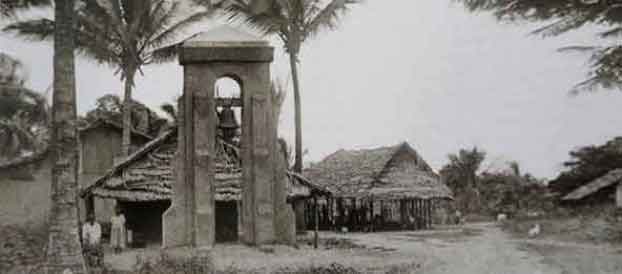How God chooses a King
There were two kings: Saul and David. God rejected Saul and elected David. Why? The answer is simple: God saw their hearts – Saul’s heart was bad and David’s heart was good. This teaches us a lot about electing leaders. We need to see their hearts – but how?
Imagine steering an aircraft with your mind. You think ‘tilt left’ and it does, you think ‘climb higher’ and it obeys. An air base in Dayton, Ohio is researching this capability. They are developing monitors that read a pilot’s brain signals and turn them into the kind that guide aircraft. Certain thoughts activate certain mechanisms. It’s strange; but an aircraft will soon tell us what a pilot was thinking! But there is a similar link between the heart and human behaviour. Specific behaviour reveals a specific thought, and consistent, habitual behaviour reveals more; it reveals a heart.
We see this with Saul and David. Saul kept doing things that revealed a bad heart, and David kept doing things that testified to a good heart. We are all called upon at some stage to vote in a ruler for our country, but how often do we vote based on the person’s heart?
The moment that God rejects Saul is recorded in Samuel 15:1-33. God had told Saul to wipe out all the Amalekites along with their animals, but Saul kept the best of the animals and allowed Agag their leader to live. Isn’t it amazing how often rulers start to accumulate things that they should not when they come to power. They make shady deals over properties, buildings, businesses, and all sorts of things. Well it’s certainly that way here in Africa and I am certain it’s in other places too! Samuel the prophet said to Saul, “What…is this bleating of sheep in my ears?” (14). Well it was Saul’s shady deals. And like Saul, rulers who have done shady deals always have a good excuse for doing them. Saul claimed the animals were for sacrifices to God! But Samuel said, “To obey is better than sacrifice!” (22). Worst of all, Saul allowed Agag to live. Why did he do that? The story does not tell us, but he obviously had a plan and he wasn’t telling Samuel about it.
Now, I love Samuel’s reaction. While Saul is making these excuses he says ‘Stop!’ (16); which is a polite way of saying ‘Shut up!’ Samuel did not want to hear the excuses! And then he told Saul “Because you have rejected the word of the Lord, he has rejected you as king” (23). Samuel is one nonsense prophet! But this is what the church is meant to be. The church is supposed to be a prophetic voice to the nation and its rulers. The church (as a people) is to hold the government of a country accountable, just as the prophets of the Old Testament held the king accountable. If the church doesn’t speak for God, who will? And so the church must say ‘Stop! Listen to what God says!’
Now, once Samuel was done with Saul he went and did what Saul should have done in the first place; he kills Agag. The scripture tells us that Agag was ‘confident’ (32). He thought he has got away with it; that he would live. We can learn a lot from this. Here Agag represents Saul’s corruption. If the king allows corruption to live it soon takes over. Give corruption a little life and it will worm its way into the system. Saul gave Agag a space in his life, but Samuel killed Agag on the spot! And this is what the church must do. We must be loud about government corruption; we must expose it and make sure not given any space to live.
So what was Saul’s problem? Why was he bending rules? What was going on inside him? Verse 12 tells us. Saul had built a monument to himself. He was not in this for God; he was in it for Saul. He had won a number of battles and now he thought he was something special. Samuel’s words were piercing, “You were once small in his own eyes” (17). Saul had fallen for fame and position. It is so easy for this to happen to a ruler. Even when candidates are campaigning for a country’s election, there is a fine line between promoting your values and exalting yourself. But the message is clear; God rejects a man who is in it for himself. We should too.
Now let’s look at David, the man God elected to replace Saul. David is different. Saul tries to kill David on four occasions realizing that he is the man that could replace him. But in 1 Sam 24.3-7 there is a sudden reversal of circumstances and David finds himself in a position to kill Saul, but refuses. He refuses to grab the throne, why? Because for David being king is all about God’s call, and if God called him he doesn’t have to grab. So often politicians get involved in all sorts of wheeling and dealing to make sure they get elected, but David refuses to act in an underhanded way. David puts what is right above what is advantageous. You see David doesn’t have to have the power; he is only interested in God’s call and what’s good for Israel. Is this kind of man you would vote for?
A little later Saul kills himself and David takes the throne. At this point a king would usually destroy the relatives and supporters of the ruler he had replaced. But David does not. In fact he tries to reconcile Saul’s family with his. He soon discovers that Saul has a crippled grandson called Mephibosheth and he takes him into his palace and allows him to eat at the royal table for the rest of his days (2 Sa 9). David strove for reconciliation with his opposition; he desired that he and his fellow Israelites be one. This is the kind of president I would vote for?
Why is David like this? Why is he so different to Saul? It brings us back to our illustration of an aircraft being steered by a pilot’s brain. David behaves different because his heart is different. David is king for God’s sake, not his own. No scripture shows David’s heart more clearly than 1 Sam 7.1-19 where David wants to build a temple for God because he can’t stand the idea of living in a palace while God’s ark is in a tent. Compare that with Saul who could only think of building a monument for himself! David was indeed a man who had a heart for God (1 Sa 13.14).
Now when God sees David’s desire to build him a house, he rewards him. He promises that he will build David’s house and give him a son who will reign forever. David is shocked at God’s generosity and humbly says, “Who am I, Sovereign Lord, and what is my family…Is this your usual way of dealing with man?” (18-19). David is king, but he knows he is just an ordinary man before God. True seekers of God can’t help being humble. This is the kind of ruler God chooses, and it’s the kind we should choose.
One fine Jerusalem day the crowds lined the streets and shouted, “Hosanna to the son of David, blessed is he who comes in the name of the Lord!” (Mt 21.9). God’s promise to David of a son who would reign forever had come true. Jesus had arrived. And did Jesus take after David? No David took after him! John the Baptist put it like this, “He who comes after me has surpassed me because he was before me” (Jn 1.15). And in Jesus we see the humility and selflessness that David was aiming for. Jesus rides into Jerusalem on a donkey. The King of kings on a donkey! That’s the equivalent of a president arriving in a common delivery vehicle! I kind of like that, don’t you? But that’s just the start. Jesus bends down at the dinner table and washes his supporter’s feet! How many rulers would do that? And Jesus isn’t interested in houses, properties or possessions. He says, “Foxes have holes, birds of the air have nests, but the Son of Man has nowhere to lay his head.” But above all, Jesus lays down his life for his people; quite literally. I mean, the cross says it all; right? And if behaviour reveals the heart, what does this say about the heart of Jesus?
So, how does God choose a king? The main thing he looks at is the heart.
This week Kenyan’s voted for a president; if you voted, I hope you did not vote for your tribe, I hope you did not vote for who you thought would win, I hope you voted for the person with the purest heart, a heart for God and the people.







